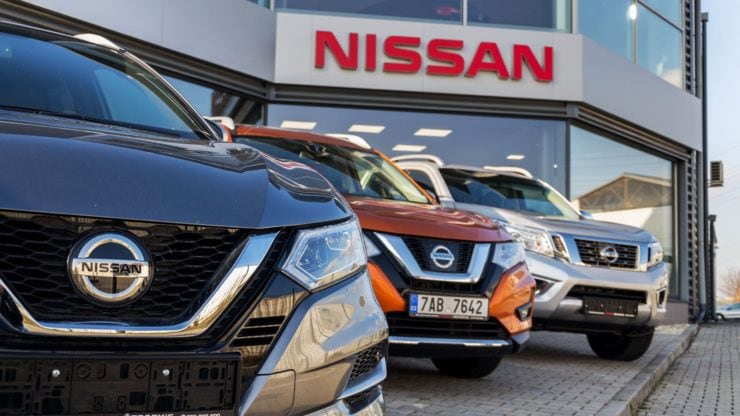On Wednesday, Nissan shares skyrocketed by 23% after reports suggested the Japanese automaker is discussing merging with Honda Motor.
The potential merger, which could also include Mitsubishi Motors, signals an ambitious move to establish a competitive edge in the burgeoning electric vehicle (EV) market.
While Nissan confirmed that collaboration possibilities are being explored, no official announcement has been made.
If realized, the partnership would mark the most significant automotive merger since Stellantis formed in 2021, highlighting the pressures on automakers to scale up amidst industry-wide challenges.
Nissan-Honda merger: will it reshape the automotive market?
Nikkei reports indicate that Honda and Nissan are considering operating under a holding company structure, potentially bringing Mitsubishi Motors into the fold.
Mitsubishi, in which Nissan owns a 24% stake, would add significant production capabilities and market reach.
Together, the merged entity could achieve over 8 million annual vehicle sales, making it the third-largest automaker globally, behind Toyota (11.2 million units) and Volkswagen (9.2 million units in 2023).
This consolidation would allow the companies to share resources for EV development, a sector currently dominated by Tesla and BYD.
Cost-sharing on components, software, and research could reduce financial strain and accelerate innovation, helping the alliance compete in an increasingly EV-focused industry.
Meanwhile, Nissan’s drive for consolidation comes amid a turbulent period.
The company previously announced plans to slash 9,000 jobs and reduce global production by 20%.
The challenges stem from declining competitiveness in key segments and fallout from its strained relationship with Renault, a former partner in the Renault-Nissan-Mitsubishi alliance.
For Honda, the potential merger presents an opportunity to strengthen its EV portfolio, an area where it has lagged compared to competitors like Volkswagen and General Motors.
Collaborating with Nissan and Mitsubishi could help Honda mitigate production risks and prepare for stricter global emissions regulations.
EV transition reshapes automaker strategies
The global automotive industry is grappling with monumental shifts, including the transition to EVs and intensifying competition from new entrants and established players.
Companies like Volkswagen and General Motors have announced job cuts and factory closures as they pivot to EVs, highlighting the high stakes of this transition.
A Nissan-Honda-Mitsubishi alliance could bring economies of scale and help the companies navigate these changes more effectively.
The merger discussions follow a strategic partnership announced earlier this year between Honda and Nissan, focusing on shared components and software development.
Expanding this partnership into a full-fledged merger could position the companies to compete more effectively in an industry dominated by larger rivals.
While the merger presents clear advantages, hurdles remain.
Operational integration across three companies with distinct management styles, production facilities, and supply chains will be complex.
Geopolitical factors such as tariffs proposed by the US could force a costly reorganization of global supply chains.
Market reaction to the news has been mixed.
While Nissan shares surged, Honda’s stock declined by 3%, reflecting investor caution over the potential risks of the deal.
Mitsubishi shares, however, rose by 19%, signaling optimism about its inclusion in the alliance.
If successful, the tie-up could reinvigorate the struggling automakers, enabling them to address challenges in the EV market while reducing costs and enhancing competitiveness.
The post Nissan shares jump 23% on potential Honda merger: what you need to know appeared first on Invezz

